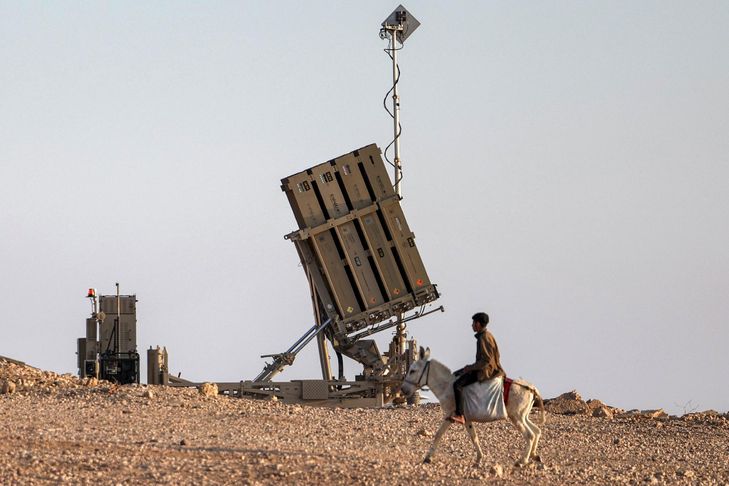Iran carried out its threat of retaliation against Israel by launching a massive and unprecedented attack against its regional enemy on Saturday evening.
But the two countries are not going to stop there, say analysts who consider a retaliation by Israel against the Islamic Republic almost inevitable, a risky operation which could further destabilize a Middle East on the brink of the precipice.
Why will Israel retaliate?
While Iran and Israel were used to confronting each other through third parties, such as the Lebanese Hezbollah, the Islamic Republic for the first time launched a direct attack, with hundreds of missiles and drones, fired from its territory.
Even if almost all of the shooting was stopped by Israel and its allies, this event “rewrites the relationship” between the two rivals, security consultant Stéphane Audrand told AFP.
On April 1, a line had already been crossed with an airstrike, attributed to Israel, against the consulate of the Iranian embassy in Damascus, Syria.

A child passes near “Iron Dome” air defense batteries, April 14, 2024 in the Negev desert, southern Israel / AHMAD GHARABLI / AFP
The attack notably caused the death of seven Revolutionary Guards, Iran’s ideological weapon, who had promised to retaliate.
“Traditionally, Israel has zero tolerance if its national soil is struck by another state,” underlines Stephane Audrand who believes that Benjamin Netanyahu “cannot not react”.
“An Israeli response will come, on Iranian soil,” also asserts on X Tamir Hayman, former head of Israeli military intelligence who heads the Institute for National Security Studies (INSS).
Will Israel attack Iranian nuclear power?
“If Israel retaliates, it will be according to the same parameters: on military sites, not on the civilian part and probably not on the economic part,” says analyst Sima Shine, a former Mossad agent who directs the program on Iran from the INSS.
To control the risk of escalation, “the Israelis would have to be content with strikes on conventional sites, on sites from which missiles were launched, on drone factories”, observes Stephane Audrand.
Moreover, the Iranian attack seems to have been calibrated to avoid “a large and significant number of victims on the Israeli side”, estimates Menahem Merhavy, an Iran specialist at the Hebrew University of Jerusalem.
The Iranians struck Israel “in a controlled manner”, notably “so as not to suffer such a substantial response from Israel which would compromise their nuclear program”, observes Hasni Abidi, of the Center for Studies and Research on Arab and Mediterranean world, in Geneva.
The Iranian nuclear program has for years been at the heart of tensions between Tehran and Israel, which accuses the Islamic Republic of seeking to acquire atomic weapons, which it denies.
With an Israeli Prime Minister considered unpredictable, who is gambling on his political survival at the head of a right-wing and far-right coalition, there is a “bit of this risk of a nuclear boom”, judges Stéphane Audrand.
What are the dangers ?
“If Israel reacts very forcefully, it is likely that we find ourselves in a situation of escalation that could spread,” warns Meir Litvak, director of the Center for Iranian Studies at Tel Aviv University.
But it is not in Israel’s interest to open a new direct front with Iran when the country is already engaged in a war with the Palestinian movement Hamas in the Gaza Strip, he stresses. .
Especially since Israeli officials are advancing on a diplomatic ridge, facing increasingly vehement criticism from foreign capitals for the ongoing humanitarian catastrophe in Gaza.
The same chancelleries, led by Washington, have closed ranks since Saturday against Iran, assuring Israel of their support, while several countries – the United States, Jordan, Great Britain, France – have supported Israeli defense militarily, according to the army.
So much so that “Israel cannot retaliate without consulting the Americans,” judges Sima Shine.
Before retaliating, “it is not only a question of consulting, but of obtaining approval from Washington,” assures Tamir Hayman.
“Time is on our side, we can think, plan and act intelligently,” he wrote on X, believing that “the defensive success” obtained this weekend allows us not to rush.











